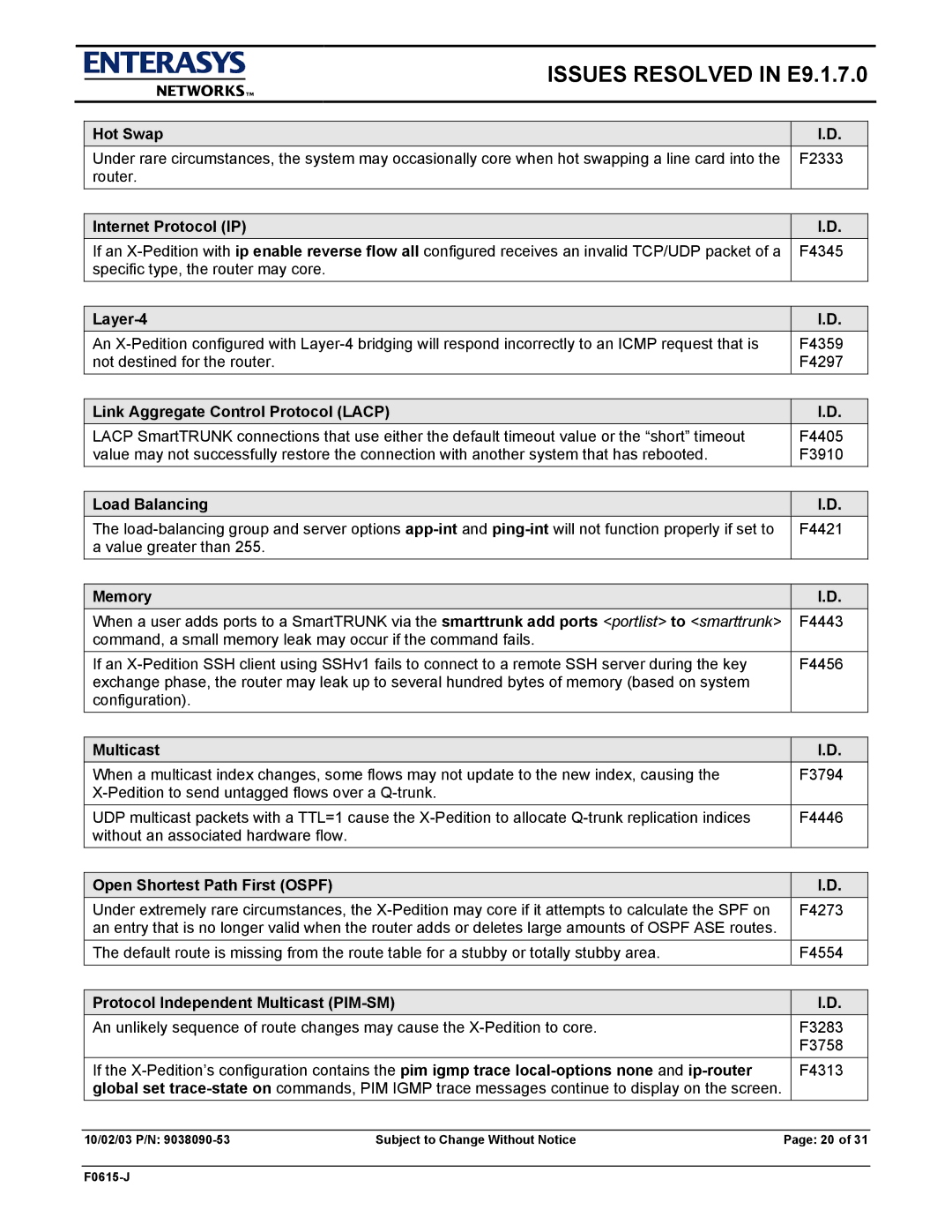
ISSUES RESOLVED IN E9.1.7.0
| Hot Swap |
|
| I.D. |
| Under rare circumstances, the system may occasionally core when hot swapping a line card into the |
| F2333 | |
| router. |
|
|
|
|
|
|
|
|
| Internet Protocol (IP) |
|
| I.D. |
| If an |
| F4345 | |
| specific type, the router may core. |
|
|
|
|
|
|
|
|
|
|
|
| I.D. |
| An |
| F4359 | |
| not destined for the router. |
|
| F4297 |
|
|
|
| |
| Link Aggregate Control Protocol (LACP) |
| I.D. | |
| LACP SmartTRUNK connections that use either the default timeout value or the “short” timeout |
| F4405 | |
| value may not successfully restore the connection with another system that has rebooted. |
| F3910 | |
|
|
|
|
|
| Load Balancing |
|
| I.D. |
| The |
| F4421 | |
| a value greater than 255. |
|
|
|
|
|
|
|
|
| Memory |
|
| I.D. |
| When a user adds ports to a SmartTRUNK via the smarttrunk add ports <portlist> to <smarttrunk> |
| F4443 | |
| command, a small memory leak may occur if the command fails. |
|
| |
| If an |
| F4456 | |
| exchange phase, the router may leak up to several hundred bytes of memory (based on system |
|
| |
| configuration). |
|
|
|
|
|
|
|
|
| Multicast |
|
| I.D. |
| When a multicast index changes, some flows may not update to the new index, causing the |
| F3794 | |
|
|
| ||
| UDP multicast packets with a TTL=1 cause the |
| F4446 | |
| without an associated hardware flow. |
|
|
|
|
|
|
|
|
| Open Shortest Path First (OSPF) |
|
| I.D. |
| Under extremely rare circumstances, the |
| F4273 | |
| an entry that is no longer valid when the router adds or deletes large amounts of OSPF ASE routes. |
|
| |
| The default route is missing from the route table for a stubby or totally stubby area. |
| F4554 | |
|
|
|
| |
|
|
|
| |
| Protocol Independent Multicast |
| I.D. | |
| An unlikely sequence of route changes may cause the |
| F3283 | |
|
|
|
| F3758 |
| If the |
| F4313 | |
| global set |
|
| |
|
|
|
|
|
| 10/02/03 P/N: | Subject to Change Without Notice | Page: 20 of 31 | |
|
|
|
|
|
|
|
|
| |
